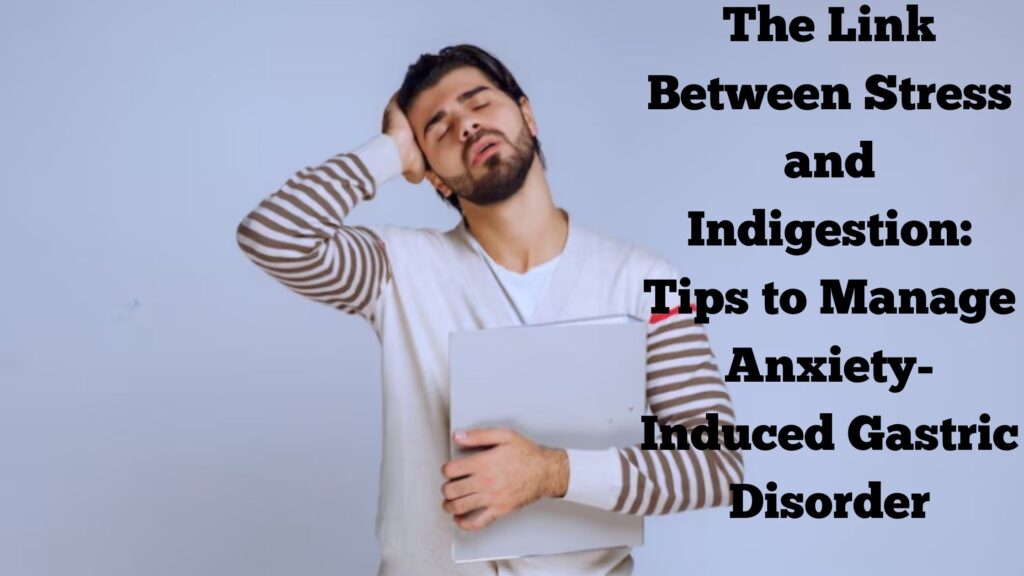We all experience stress at some point in our lives, and it can have a significant impact on our physical and mental health. One of the most common physical symptoms of stress is indigestion. Indigestion can manifest in several ways, including bloating, gas, abdominal pain, nausea, and heartburn. If left untreated, stress-induced indigestion can lead to more severe digestive problems, such as ulcers, irritable bowel syndrome (IBS), and acid reflux disease. In this blog post, we will explore the link between stress and indigestion and provide tips for managing anxiety-induced gastric disorder.
What is Stress-Induced Indigestion?
Stress-induced indigestion is a digestive disorder that is caused by anxiety or emotional stress. When we experience stress, our body’s natural “fight or flight” response is triggered. This response causes the release of stress hormones, such as cortisol and adrenaline, which can affect our digestive system.
Stress hormones can cause the muscles in our digestive tract to contract and cause digestive issues such as bloating, gas, abdominal pain, and diarrhea. Additionally, stress can cause the stomach to produce more acid, which can lead to heartburn and acid reflux.
How to Identify Stress-Induced Indigestion?
Stress-induced indigestion can present itself in various ways. Here are some common symptoms to look out for:
- Abdominal pain and cramping
- Bloating and gas
- Nausea and vomiting
- Diarrhea or constipation
- Heartburn and acid reflux
If you experience any of these symptoms regularly, it’s essential to consult a healthcare professional to rule out any underlying medical conditions.
Tips to Manage Anxiety-Induced Gastric Disorder:
Practice Relaxation Techniques:
Relaxation techniques such as deep breathing, meditation, and yoga can help reduce stress and alleviate indigestion symptoms. Deep breathing exercises can help calm the mind and body and reduce the production of stress hormones. Meditation and yoga can also help promote relaxation and reduce anxiety levels.
Eat a Balanced Diet:
A balanced diet that includes whole grains, fruits, vegetables, lean proteins, and healthy fats can help support your digestive system and reduce the risk of indigestion. Avoid consuming high-fat and high-sugar foods, as they can cause inflammation in the digestive tract and lead to bloating and abdominal pain.
Stay Hydrated:
Drinking plenty of water can help keep your digestive system functioning correctly and prevent dehydration, which can worsen indigestion symptoms. Avoid consuming too many caffeinated and alcoholic beverages, as they can dehydrate the body and irritate the digestive tract.
Exercise Regularly:
Regular exercise can help reduce stress and improve digestion. Exercise can help stimulate the digestive system and promote healthy bowel movements. It can also help boost the production of feel-good hormones, such as endorphins, which can help reduce anxiety levels
Get Enough Sleep:
Getting enough sleep is essential for overall health and wellbeing. Lack of sleep can lead to increased stress levels, which can worsen indigestion symptoms. Aim to get at least 7-8 hours of sleep per night to promote rest and relaxation.

